The PaquetLab aims to build human tissue models recapitulating major brain diseases. To establish these models, we apply and combine cutting-edge technologies, such as CRISPR/Cas genome editing, induced pluripotent stem cells (iPSCs), differentiation of iPSCs into human brain cells, and brain tissue engineering. Using these models, we want to understand the molecular and cellular mechanisms leading to nerve cell damage and death, and subsequent cognitive decline in patients with neuropsychiatric disorders, such as Alzheimer’s disease and frontotemporal dementia, and neurovascular impairments including stroke and vascular cognitive impairment.
Due to the inaccessibility of human brain cells for molecular research, neurodegenerative diseases have mostly been studied in animal and simple cellular models. These have significantly broadened our knowledge, but due to their drawbacks also limit successful translational research. We address this gap by developing human disease models using a powerful combination of CRISPR genome editing – which allows altering most genes in the human genome – and iPSC technology – which allows generating and studying somatic brain cells in the laboratory that are directly affected by disease. The disease-relevant cell types we study include neurons, astrocytes, microglia, oligodendrocytes, smooth muscle cells and endothelial cells, and the research projects in our lab focus on three major areas:
CRISPR genome editing in iPSCs
We believe that efficient and reliable genetic access to the patient cells we study is crucial to investigate the role of disease-associated genes, genetic variations such as SNPs, and to induce or modify disease symptoms in our models. In a set of fundamental studies (Paquet et al. Nature 2016; Kwart et al. Nat Prot 2017; Kwart et al. Neuron 2019) we revealed simple principles of efficient CRISPR/Cas9 genome editing in human iPSCs. We also demonstrated the potential of studying Alzheimer’s disease-causing mutations in isogenic sets of CRISPR-edited, iPSC-derived human cortical neurons. Recent work in our lab focused on improving the reliability and specificity of the CRISPR system e.g., by revealing frequent on-target effects in human iPSCs after editing and providing the field with simple detection tools to characterize and avoid these deleterious consequences of CRISPR genome editing (Weisheit et al. Cell Reports 2020).
Featured Publication:

Watch our video abstract on Youtube:
Taming widespread collateral damage of CRISPR editing
CRISPR-Cas9 has revolutionized disease-research, as it greatly simplifies targeted genome editing. However, CRISPR systems are not entirely accurate and can introduce potentially harmful additional mutations, called on-target effects. In a collaborative study with the DichgansLab, the PaquetLab identified widespread prevalence of on-target effects in clinically relevant CRISPR-edited iPS cells and describes broadly applicable tools to detect these unintended alterations. The new method improves the reliability of CRISPR editing. [read more...]
Brain cell differentiation from iPSCs and brain tissue engineering to study neurodegenerative diseases

Recent work in the field has indicated that major aspects of the complex pathological processes underlying human neurodegenerative disease depend on the interplay between multiple cell types, such as neurons, microglia, astrocytes and oligodendrocytes. We therefore believe that optimal investigation of such disease processes will not only require human cells, but also complex, 3-dimensional tissue models containing the major disease-relevant cell types. In a recent review article, we discussed the current status of the field and strategies to design the next generation of iPSC-based models of brain diseases (Klimmt*, Dannert*, Paquet, Curr Opin Neurobiol 2020). A major focus of our lab is therefore to establish technologies for the optimized differentiation of all major brain cell types relevant for neurodegenerative disease, and to combine them in a 3-dimensional human brain tissue model. In this model, we aim to elicit and study disease phenotypes and investigate underlying pathomechanisms. In addition, because such models are accessible for genetic manipulation and amenable to drug development, we plan to apply them for translational studies to accelerate the identification of novel therapeutic approaches and targets.
Human models of brain vessels to investigate the biology of the blood-brain-barrier and mechanisms of neurovascular disease

Increasing evidence points to a major role of brain vasculature not only in neurovascular diseases, such as stroke, small vessel disease, etc., but also in a broad group of other brain diseases including Alzheimer’s. At the same time, genetic studies from our institute and others revealed many genetic loci associated with neurovascular impairment in patients. Using the above-mentioned combination of CRISPR editing and iPSC-based tissue engineering, we are setting up modular systems of human brain vessels that allow investigating mechanisms of human neurovascular disorders and the underlying genetic causes and associations.
Contact:
Dominik Paquet
Professor of Neurobiology
Institute for Stroke and Dementia Research (ISD), University Hospital, LMU Munich
Room 8G 02 144
Feodor-Lynen-Straße 17
D-81377 Munich, Germany
Phone: +49 89 4400 46123
E-Mail: dominik.paquet@med.uni-muenchen.de

2025
2024
2023
2022
2021
2020
2019
2016
2014
2010

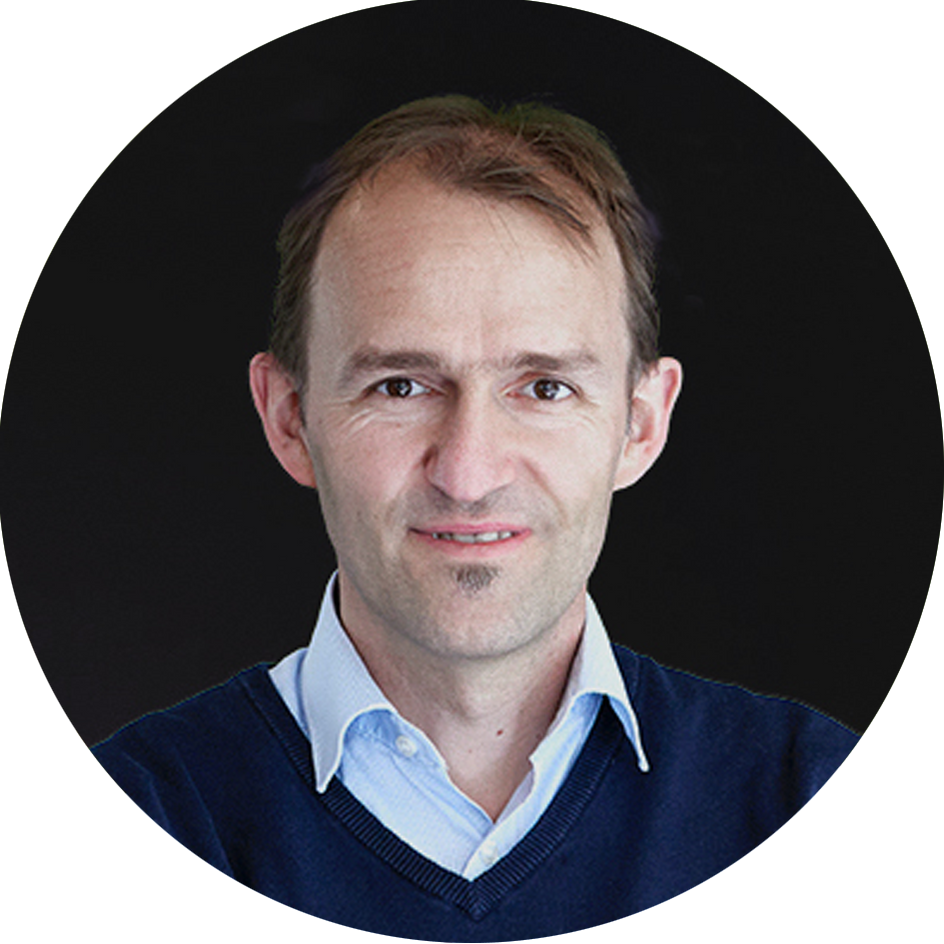
Dominik Paquet, Principal investigator
Dominik established the PaquetLab at ISD in 2017, after he was appointed Professor for Neurobiology at LMU Munich and became a member of the Munich Cluster for Systems Neurology (SyNergy). He received his BSc and MSc from the Eberhard-Karls-University Tübingen, Germany. During his MSc Dominik worked with Henry Roehl at the MRC Centre for Developmental Genetics in Sheffield, UK. For his PhD, Dominik developed the first Tau-transgenic zebrafish model to study mechanisms of Tau-related neurodegeneration with Christian Haass at LMU Munich. After working with Thomas Misgeld at TU Munich for 2 years on in vivo imaging to study mitochondrial transport defects in neurodegenerative diseases, Dominik joined the lab of Marc Tessier-Lavigne at The Rockefeller University in NYC as a New York Stem Cell Foundation Druckenmiller Fellow. There, he pioneered the use of CRISPR/Cas9 gene editing in induced pluripotent stem cells to study diseases of the human brain.
E-Mail: Dominik.Paquet@med.uni-muenchen.de
Phone: +49 89 4400 46123
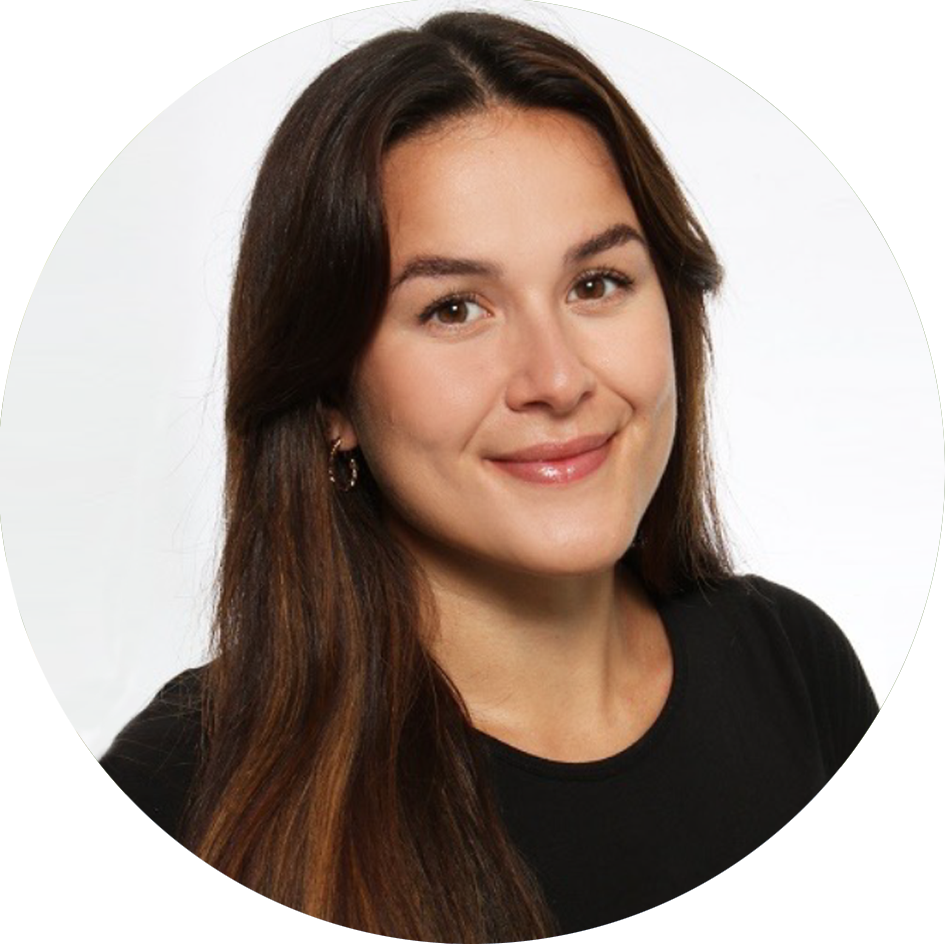
Angelina Korn, Labmanager/Team Assistant
Angelina grew up near Straubing in Bavaria and completed her Bachelor of Science in Chemical Biotechnology at the Technical University of Munich. She wrote her bachelor's thesis on the enzymatic degradation of PHB and PLA. Afterwards, she worked in the chemical industry as a material engineer. Due to her great interest in medicine and biology, she joined the PaquetLab as a laboratory manager in February 2025. She is supporting our team in all matters related to research organization, personnel, budgeting, ordering, and communication with various internal and external departments and partners.
E-Mail: Angelina.Korn@med.uni-muenchen.de
Phone: +49 89 4400 46026

Julien Klimmt, Postdoc
Julien was born and raised in Chemnitz, Germany. He received his BSc in Human Biology from the University of Greifswald in 2014 and a MSc in Molecular Biosciences with a major in neurosciences at the University of Heidelberg. During his Master’s he worked at Harvard Medical School with Dr. Matthew J. LaVoie on the cytosolic function of Parkin. In 2017 he finished his Master’s degree working on epigenetic mechanisms in memory formation and then joined the PaquetLab as a graduate student. He is now working on complex cell culture systems using CRISPR/Cas9-edited, iPSC-derived brain cells to model AD.
E-Mail: Julien.Klimmt@med.uni-muenchen.de
Phone: +49 89 4400 46223

Angelika Dannert, Postdoc
Angelika grew up near Ulm in Germany. She studied Molecular Medicine and obtained her BSc from the University of Tübingen, and her MSc from the University of Göttingen, Germany. During her studies she did international research internships at Free University Amsterdam, University of Zürich, and Stanford University. During her master’s she worked on iPSC-based models of depression at a biotech company in Heidelberg, followed by her thesis on prevention of vascular stiffening in cell lines and primary human cells at the University Hospital in Göttingen. She joined the PaquetLab in December 2018 and is working on the development of complex in vitro models of FTD using CRISPR/Cas9-edited iPSC-derived brain cells.
E-Mail: Angelika.Dannert@med.uni-muenchen.de
Phone: +49 89 4400 46223

Judit Gonzalez Gallego, Postdoc
Judit is a native of Spain. She obtained her BSc in biochemistry from the Autonomous University of Barcelona. After completing her bachelors degree, she worked for one year at the Center of Neurobiology of Hamburg University with Dr. Marina Mikhaylova in protein neuronal transport. She joined the ISD in 2018 as fast-track PhD student in the Graduate School of Systemic Neuroscience (GSN). She worked both in the PaquetLab and DichgansLab on a joined project to develop the first fully iPSC-derived 3D model of the blood brain barrier and apply it to investigate mechanisms of neurovascular diseases. Judit graduated in 2023 and continued to work in both labs as a Postdoc.
E-Mail: Judit.Gonzalez@med.uni-muenchen.de
Phone: +49 89 4400 46177
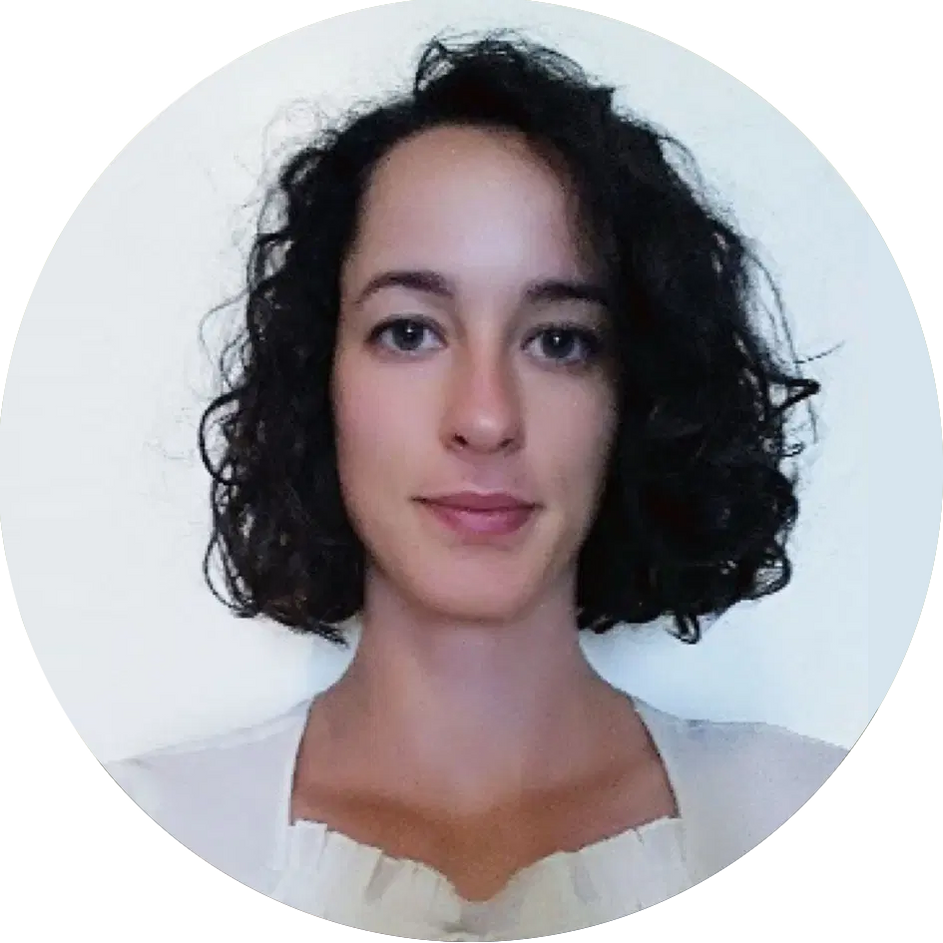
Mila Borri, Postdoc
Mila is originally from Florence, Italy. She obtained her MSc in Medical Biotechnology from the University of Padua (Italy) in 2016. During her Master’s she studied the differential responsiveness of CNS glial cells to Serum Amyloid A. In 2018, she moved to Belgium for her PhD in the Laboratory of Angiogenesis and Vascular Biology at VIB-KU Leuven, under the supervision of Prof. Peter Carmeliet. Here her work focused on the endothelial cell metabolism in renal ischemia/reperfusion injury. She joined the PaquetLab in March 2024 for studying the role of the vasculature in brain diseases.
E-Mail: Mila.Borri@med.uni-muenchen.de
Phone: +49 89 4400 46225
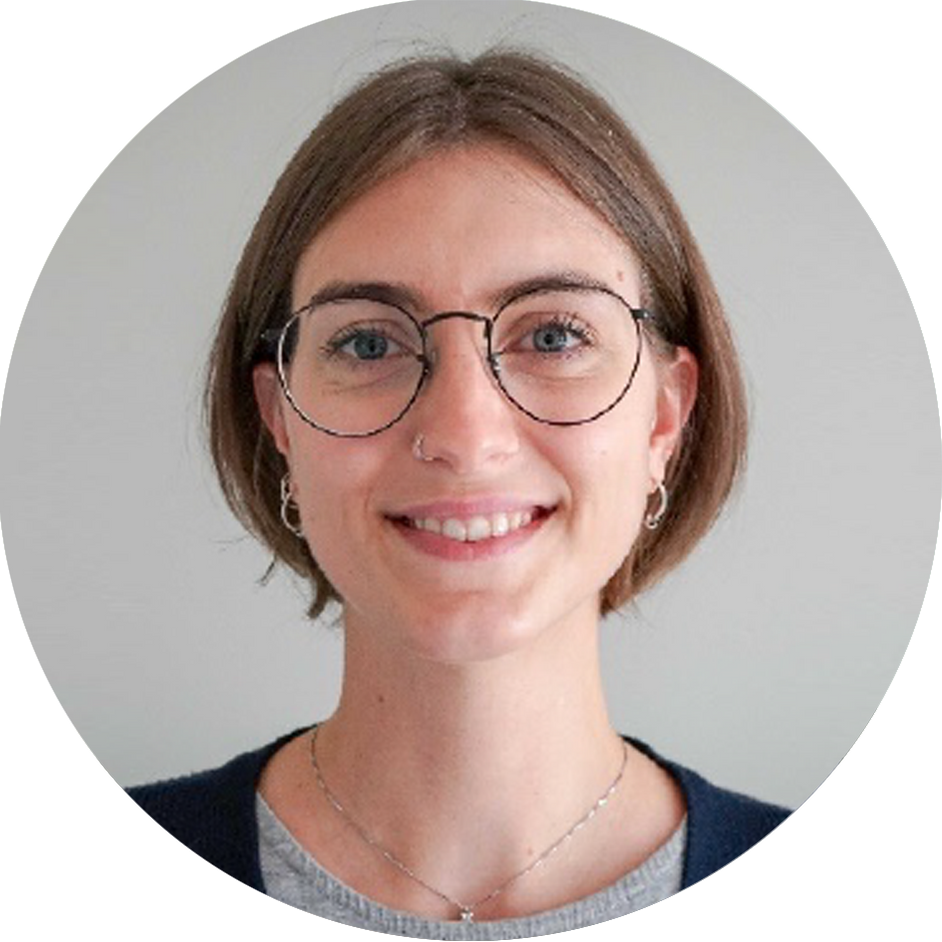
Caterina Carraro, Postdoc
Caterina is originally from Venice, Italy. She received her MSc in Pharmaceutical Biotechnologies in 2017 and her PhD in Molecular Sciences in 2021, both at the University of Padova. During her PhD in the group of Barbara Gatto, she worked on the development of novel nucleic acid-targeting anticancer candidates, applying molecular and omics-based approaches to characterize their mechanism of action and determinants of sensitivity. From 2022 to 2025 she worked with Joachim Schultze (Systems Medicine, DZNE Bonn) as a Postdoc and specialized in the use of single-cell and spatial multi-omics for the immune phenotyping of clinical cohorts in the context of aging and AD. In April 2025, she joined the PaquetLab with a DFG Walter Benjamin Fellowship to develop a high-throughput single-cell transcriptomics-based AD drug screening platform using advanced 3D brain in vitro models.
ORCID: 0000-0002-3039-4675.
E-Mail: Caterina.Carraro@med.uni-muenchen.de
Phone: +49 89 4400 46224
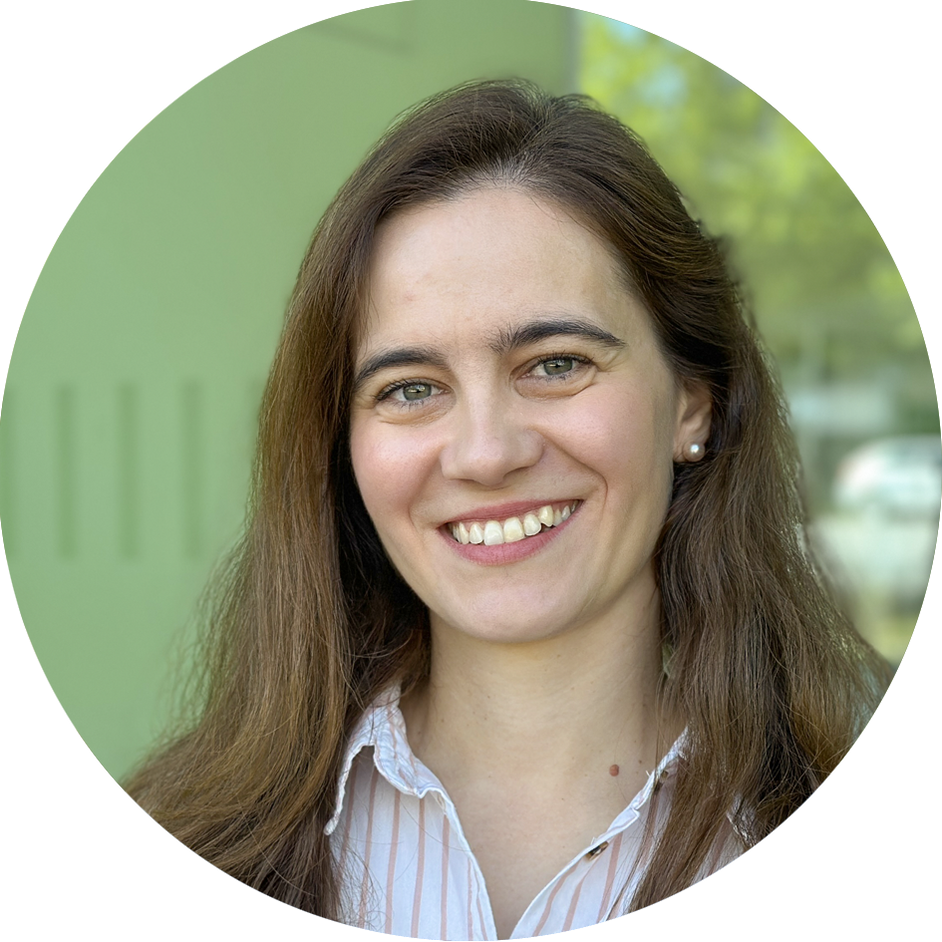
Tijana Ljubikj Maurer, Postdoc
Tijana is originally from Skopje, North Macedonia. She is a Medical Doctor by profession and obtained her medical training in 2014 at the Ss. Cyril and Methodius University in Skopje, North Macedonia. She obtained her MSc in Molecular and Developmental Stem Cell Biology at the Ruhr-University Bochum and the Institute for Stem Cell Research and Regenerative Medicine in Düsseldorf, where she worked on iPSC derived model of Crigler Najjar Syndrome. She then pursued her PhD in Regenerative Medicine in Utrecht, the Netherlands, where she worked in Jeroen Pasterkamp‘s lab on dissecting the role of microglia in C9ORF72-ALS using brain organoids. Tijana joined the Paquet Lab as a Postdoc in July 2025 to investigate Aβ and Tau interactions in an iPSC derived 3D brain tissue model of AD.
E-Mail: Tijana.Ljubikj@med.uni-muenchen.de
Phone: +49 89 4400 46225

Carolina Cardoso Goncalves, GSN graduate student
Carolina grew up in a small town near Coimbra, Portugal. She obtained her BSc in Biochemistry and her MSc in Cellular and Molecular Biology from the University of Coimbra, Portugal. During her studies she did internships at Centre Hospitalier Universitaire Vaudois in Lausanne, Karolinska Institute in Stockholm and University of Lausanne. For her master´s thesis she joined the group of Prof. Paola Bezzi at the University of Lausanne, Switzerland, where she studied the mechanisms underlying the control of dopamine homeostasis in astrocytes from the prefrontal cortex. After her Masters she worked as a Junior Research Fellow investigating the role of astrocyte-induced neural microenvironment remodeling in neural 3D cell models at the Animal Cell Technology Unit of iBET and ITQB-NOVA in Lisbon, Portugal. Carolina joined the PaquetLab in September 2019 and is currently working on the development of dynamic 3D cell cultures to model AD.
E-Mail: Carolina.Cardoso@med.uni-muenchen.de
Phone: +49 89 4400 46222

Merle Bublitz, GSN graduate student
Merle grew up in Hannover, Germany, after which she moved to Iowa, USA, to become a student athlete at Morningside University and obtain her BSc in Biology and Mathematics. During her Bachelor’s she worked with Dr. Chad Leugers investigating the role of tau protein and abnormal MAPK signaling pathways in Alzheimer’s disease. She also spent one semester at Griffith University in Australia with a focus on computational biology. In 2019, Merle became a master’s student with the GSN. After a research internship with Prof. David Franklin, where she investigated the impact of positive reinforcement learning in dual adaptation, she joined the PaquetLab for a research internship in October 2020. For her master’s thesis she is studying CRISPR/Cas9-edited iPSCs as a model system for AD.
E-Mail: Merle.Bublitz@med.uni-muenchen.de
Phone: +49 89 4400 46226

Ishita Ajiith, GSN graduate student
Originally from Mumbai, India, Ishita earned her BSc in Biotechnology from the University of Mumbai and MSc in Biomedical Sciences from the University of Edinburgh, where she studied neuron-astrocyte-microglial interactions and lipid droplet dynamics. At Oxford's Drug Discovery Institute, she focused on AD target validation through protein purification and high-throughput cell based assays in iPSCs, while authoring Target Enablement Packages. She joined the Paquet Lab in December 2024 as a PhD student, to investigate FTD mechanisms linked to progranulin mutations using dynamic 3D brain tissue models.
E-Mail: Ishita.Ajith@med.uni-muenchen.de
Phone: +49 89 4400 46226

Jan Niklas Dreessen, GSN graduate student
Jan grew up in Hamburg, Germany. He studied Molecular Biotechnology at the Technical University of Munich and obtained his BSc and MSc in that field. During his studies, he worked in several laboratories around Munich obtaining skills in various cell culture applications and 3D cell culture systems. In his Master’s thesis, he built a 3D imaging platform investigating macrophage bacteria interactions under the supervision of Prof. Dr. med. Rainer Burgkart. He joined the Paquet Lab in October 2024 and is investigating the signaling pathway of PLCG2 in AD as well as implementing lab automation into the lab’s differentiation protocols.
E-Mail: Jan.Dreessen@med.uni-muenchen.de
Phone: +49 89 4400 46222
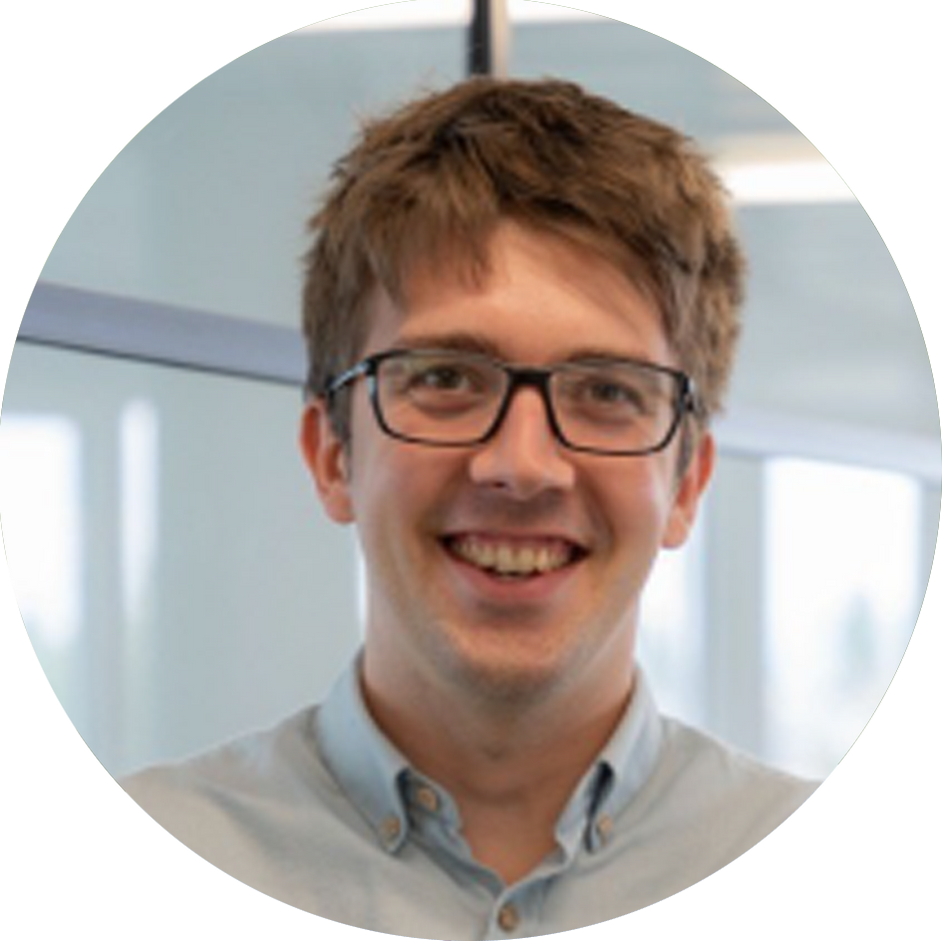
Jonas Rybnicek, GSN graduate student
Jonas grew up in a small village near Brno in the Czech Republic. He completed his BSc in Biomedical Sciences at the University of Dundee in 2019. During his undergraduate studies he did research placements and internships at the University of Alberta, IST Austria, MIT, as well as the LMU in Munich in the Kerschensteiner lab. During his MSc in Neuroscience at the University of Toronto in the Lambe lab, he studied the role of cortical cholinergic signaling in Alzheimer’s disease. Following his MSc graduation in 2022, Jonas joined the AI medicine startup Exscientia. There, he worked to develop an in-house patient-derived organoid biobank for use in high-throughput drug discovery projects. Jonas joined the Paquet lab in August 2025, to work on his PhD project utilizing novel 3D brain models to develop drug discovery and target validation assays for tauopathies.
E-Mail: Jonas.Rybnicek@med.uni-muenchen.de
Phone: +49 89 4400 46224

Nathalie Schulz, CTA
Nathalie was born and raised in Künzelsau, Germany. She graduated 2013 as a chemistry lab technician and worked as a lab technician for several years in Berlin. She joined the PaquetLab in May 2023 and is involved in several projects from stem cell differentiation to CRISPR/Cas9 genome editing. She also contributes to a functional lab environment and supports the entire team in multiple ways.
E-Mail: Nathalie.Schulz@med.uni-muenchen.de
Phone: +49 89 4400 46247
Alumni
Sophie Antesberger, GSN graduate student
Jennifer Sandrina Yilmaz, Lab manager
Rita Grimalt, Master student
Marvin Reich, GSN graduate student
Lea Knez, master student
Lisa Pelzl, master student
Liliana Pedro, GSN graduate student
Elizabeth Bader, master student
Juliette Chevalier, master student
Kyle Brandon, undergraduate researcher
Melanie Falke, master student
Patricia Yuste-Checa, postdoc
Sophie Robinson, GSN graduate student
Joseph Kroeger, GSN graduate student
Dennis Crusius, BTA
Bérenice Horlacher, master student
Isabel Weisheit, GSN graduate student
Annika Wagener, master student
Katja Salbaum, master student
Andrea Stüven, Team Assistant
Gernot Kleinberger, postdoc
Samantha Ho, undergraduate researcher
Ioanna Emmanouilidis, undergraduate researcher
Sarah Hübner, undergraduate researcher
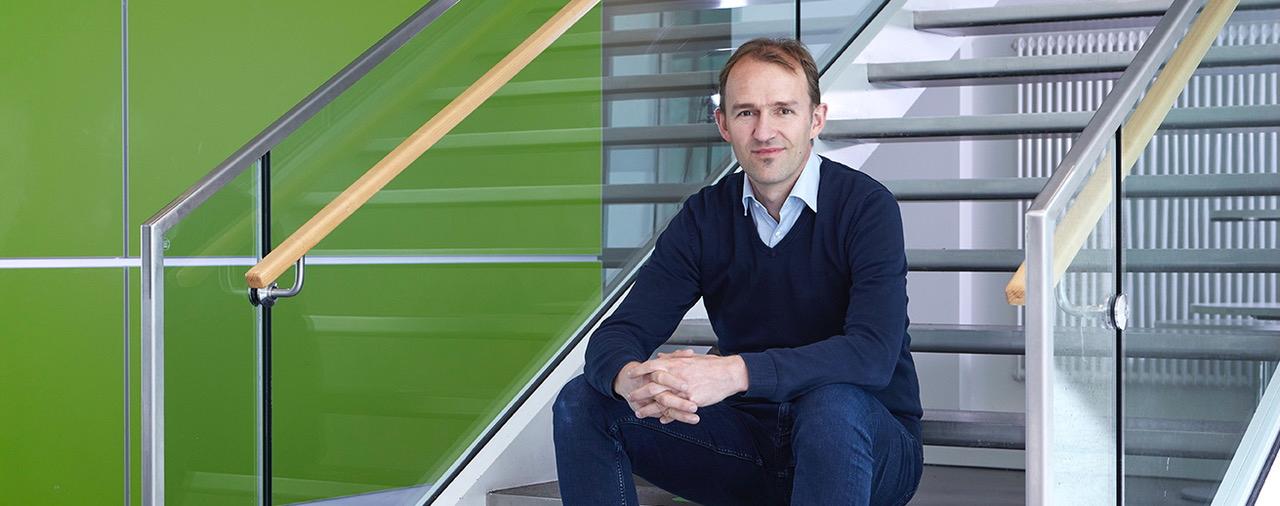
I have a long-standing interest in elucidating the molecular mechanisms leading to degeneration of the human brain in Alzheimer’s disease (AD), frontotemporal dementia (FTD), stroke and related neurodegenerative and neurovascular disorders. One of the major research goals of my lab is to develop model systems that recapitulate central features of human disease and apply these models to investigate the molecular players leading to malfunction and demise of neurons. I started my scientific career as a graduate student with Christian Haass at LMU Munich, where I developed the first transgenic zebrafish model of AD and FTD that showed neurodegeneration and protein aggregation. In a follow-up study with Thomas Misgeld at TU Munich we performed the first in vivo imaging of axonal transport, a cellular pathway involved in disease progression, in an intact vertebrate animal. Both studies opened the field for human disease modelling in transgenic zebrafish, served as models for several subsequent studies in other labs, were highly cited (Publications in JCI and J Neuroscience), and received several research awards.
After focusing on animal models during my PhD, I moved closer to the human patient during my Postdoc with Marc Tessier-Lavigne at The Rockefeller University in NYC. There, I developed induced pluripotent stem cell (iPSC) based models of Alzheimer’s disease (AD) and Tauopathies in collaboration with scientists at the New York Stem Cell Foundation. At this point, first studies had described the use of patient iPSCs for AD disease modelling, but there was no technology available allowing efficient genetic access, to introduce or correct mutations. I developed robust techniques for genome editing of iPSCs using CRISPR/Cas9 and demonstrated for the first time the formation of disease-relevant, zygosity-dependent phenotypes by knock-in two early-onset AD mutations (Publications in Nature and Nature Protocols).
Based on this work, my lab at ISD Munich is now focussing on building advanced human in vitro model systems recapitulating neurodegenerative and neurovascular diseases using iPSCs and genome editing with CRISPR/Cas9.
Scientific vita | Dominik Paquet
2011 – 2016 Postdoctoral Fellow, Laboratory for Brain Development and Repair, The Rockefeller University, New York, USA; Mentor: Marc Tessier-Lavigne
2009 – 2011 Postdoctoral Fellow, German Center for Neurodegenerative Diseases (DZNE), Munich, Germany; Mentors: Thomas Misgeld, Christian Haass
2005 – 2009 PhD Thesis (summa cum laude), Department of Biochemistry, Adolf-Butenandt-Institute, Ludwig-Maximilians University (LMU), Munich, Germany; Mentor: Christian Haass
2004 – 2005 Diploma Thesis, MRC Centre for Developmental Genetics, University of Sheffield, United Kingdom; Mentor: Henry Roehl
1999 – 2004 Studies of Biology (summa cum laude), University of Tuebingen, Germany
Fellowships
• Druckenmiller Postdoctoral Fellowship, The New York Stem Cell Foundation
• Postdoctoral Fellowship, German Academy of Sciences Leopoldina
• PhD-Fellowship, Universität Bayern e.V. (Graduiertenförderung nach dem Bayerischen Eliteförderungsgesetz)
• Diploma Thesis Fellowship, German academic exchange service (DAAD)
• Diploma Thesis Fellowship, Department of Biomedical Sciences, University of Sheffield, UK
Awards
• Helga-Steinlein Award, Alzheimer-Forschungs-Initiative 2025
• Sanofi iAward 2020
• NCL Foundation Neurodegeneration Award 2018
• Best poster award, The New York Stem Cell Foundation Innovators Retreat 2016
• Best talk award, The New York Stem Cell Foundation Innovators Retreat 2015
• Award for 'Intelligible Science’, Helmholtz Zentrum Geesthacht, 2010
• Finalist at Deutscher Studienpreis 2010, Körber-Stiftung, 2010
• Best talk award, Interact-Meeting Munich 2009
• International Leda-Hanin-Award of the Cornelli Foundation, AD/PD-Meeting 2009
• International Verum Award of the Verum Foundation, 2009
• 1st Young Investigator Award of the Universität Bayern e.V., 2008
• Travel award, The Lindau Nobel Laureate Meeting, 2007
6 Oct 2023

We are very proud of Judit Gonzalez Gallego, who successfully defended her great PhD work co-supervised by Martin Dichgans and Dominik. Congratulations Judit and many thanks for your nice work! And thanks lab for the wonderful hat!
1 Oct 2023

We are delighted to receive a research grant from the German Ministry for Education and Research BMBF for a collaboration with ISAR Bioscience GmbH on our human iPSC-based brain tissue models for Alzheimer’s disease! Many thanks for the support. For further info, see here...
29 Sept 2023
We are very happy that we could contribute to a study in Molecular Neurodegeneration: A microglial activity state biomarker panel differentiates FTD-granulin and Alzheimer’s disease patients from controls. Great collaboration with the labs of Christian Haass and Stefan Lichtenthaler at DZNE and Henrik Zetterberg at Uni Gothenburg! Congrats Ida!
12 Sept 2023

Dominik presented our work at the Endolysosomal x Neuroimmune Consortium Meeting in Gloucester, USA. And he also helped eating all the leftover lobster...
5 Sept 2023

Dominik was invited to present the Keynote lecture at the PORT for Health Neuroscience meeting in Wroclaw, Poland. Thanks for the invitation!
3 Aug 2023

We are delighted to receive a prestigious research grant from the Alzheimer’s Association for the E2A program for our project on investigating molecular disease mechanism in a human model of FTD-GRN. Many thanks! For further info, see here...
15 July 2023
We just posted a preprint on BioRxiv: Rescue of FTLD-associated TDP-43 pathology and neurodegeneration by peripheral AAV-mediated expression of brain-penetrant progranulin. Great collaboration with the labs of Christian Haass at DZNE and Gil di Paolo at DENALI Inc.! Congrats Marvin and Matt!
14 July 2023

We are very proud of Sophie Robinson, who successfully defended her nice PhD work co-supervised by Christian Haass and Dominik. Congratulations Sophie and good luck with your new job in Boston! And thanks lab for the wonderful hat!
6 July 2023

We had again a great time at the ISD retreat and Carolina presented her project.
18 June 2023

Dominik presented Judit’s work in a talk at the CVB Neurovascular Meeting in Uppsala, Sweden.
18 June 2023
We just posted a preprint on BioRxiv: A MICROGLIAL ACTIVITY STATE BIOMARKER PANEL DIFFERENTIATES FTD-GRANULIN AND AD FROM CONTROL CASES. Great collaboration with the labs of Christian Haass and Stefan Lichtenthaler at DZNE and Henrik Zetterberg at Uni Gotherburg! Congrats Ida!
16 June 2023
New research paper from the lab at STAR Protocols: Reproducible and scalable differentiation of highly pure cortical neurons from human induced pluripotent stem cells. We hope our reproducible neuron differentiation protcol will be useful for the field! Congrats Angelika, Julien and Carolina!
1 May 2023

Congratulations to Joey Kroeger, who successfully defended his PhD work! Thanks for your work and best of luck for your new job in Planegg! And thanks lab for the wonderful hat!
1 April 2023
We are very happy that we could contribute to a study in JBC: Membrane lipid remodeling modulates γ-secretase processivity. Great collaboration with Harald Steiner at LMU/DZNE Munich. Congrats Edgar!
15 Mar 2023

Dominik presented Angelika’s work at the AD/PD 2023 conference in Gothenburg, Sweden.
13 Mar 2023
We are very happy that we could contribute to a study in Nature Biotechnology: Single-cell transcriptomic atlas-guided development of CAR-T cells for the treatment of acute myeloid leukemia. Great collaboration with Sebastian Kobold from LMU Hospital. Congrats Adrian!
10 Mar 2023

Judit and Dominik joined the first meeting of our new Leducq network in NYC to present and discuss our work and set up some nice collaborations.
17 Feb 2023

Congratulations to Liliana Pedro Dominguez, who successfully defended her PhD co-supervised by Mika Simons and Dominik! Thanks for your nice work and best of luck for your new job in Hamburg! And thanks lab for the wonderful hat!
01 Jan 2023

We are delighted to receive a prestigious research grant from Foundation Leducq for our collaborative project BRENDA - International Network of Excellence on Brain Endothelium - A Nexus for Cerebral Small Vessel Disease. For further info, see https://www.brenda-leducq.de
14 Dec 2022

We had a funny Christmas party in our institute!
01 Dec 2022
We are very happy that we could contribute to a study in Cell Stem Cell “A reference human induced pluripotent stem cell line for large-scale collaborative studies“. Great collaboration with Florian Merkle, Michael Ward, Mark Cookson and Bill Skarnes! Congrats Caroline et al.!
30 Nov 2022

Judit presented her work at the EMBO Neurovascular interface meeting in Heidelberg in a talk.
15 Nov 2022

Several lab members joined the International Eibsee Conference to present our work and exchange ideas.
1 Nov 2022

Get-together to welcome the newest Baby-lab-member!
25 Oct 2022

Dominik presented our work at the International ISMND Conference in Athens, Greece and received an award for the best talk. Many thanks for selecting our work!
18 Oct 2022

We are very proud of Julien Klimmt, who defended his great PhD work successfully. Congratulations Julien and many thanks for your nice work! And thanks lab for the wonderful hat!
30 Sept 2022

The lab joined the Oktoberfest lecture with special guest Matt Blurton-Jones. Thanks, Matt, for coming and enjoying the “Wiesn” with us.
7 Sept 2022

New research paper from the lab in EMBO Molecular Medicine: TPC2 rescues lysosomal storage in mucolipidosis type IV, Niemann–Pick type C1, and Batten disease. Great collaboration with Diego Medina and Christian Grimm! Congrats Anna and Einar!
15 July 2022

The lab was again very strong at b2run 2022, a running event of Munich companies and institutes.
11 July 2022

We hosted Martin Kampmann from UCSF for a research talk, discussions with lab members, and a “PI hike” around Zugspitze. Thanks, Martin, for visiting us!
7 July 2022

We had a nice and scientifically stimulating ISD retreat at Ammersee.
03 July 2022

Judit and Dominik joined a fantastic workshop “Mechanism of Cerebral Small Vessel Disease” in Crans-Montana, Switzerland, for extended discussions with leaders in the field.
27 June 2022

Several lab members attended the 2022 Stem Cell Workshop in Tübingen, Germany. Dominik presented a research talk and Julien and Angelika posters. Big congrats to Angelika for winning the best poster award!
5 April 2022

We are delighted to receive a research grant on our human iPSC-based model of Tauopathies from the Brightfocus Foundation! Many thanks for your support!
15 March 2022

Sophie and Julien presented posters at the international AD/PD meeting in Barcelona, and Dominik chaired a session and presented several cool lab projects in a talk.
15 Feb 2022
New research paper from the lab in The EMBO Journal: Loss of TREM2 rescues hyperactivation of microglia, but not lysosomal deficits and neurotoxicity in models of progranulin deficiency. Great collaboration with the labs of Christian Haass at DZNE and Kathryn Monroe at DENALI Inc.! Congrats Annika and Sophie!
15 Dec 2021

We had a small socially distanced lab get together and got an exciting tour of the technical parts of our research building.
30 Oct 2021

Two posters from the lab at #NHAD21 in Leuven from @JulienKlimmt and @AngelikaDannert about our iPSC-derived models of Alzheimer’s and Tauopathies.
15 Oct 2021

Dominik presented our work on iPSC-derived human brain tissue models of neurodegenerative and neurovascular diseases at the German stem cell conference #GSCN21
7 Oct 2021

We are very happy that we could contribute to a study in EMBO Molecular Medicine: Repurposing of tamoxifen ameliorates CLN3 and CLN7 disease phenotype. Great collaboration with Diego Medina and Christian Grimm! Congrats Chiara!
15 July 2021

We are really excited and happy that one the lab’s first PhD students successfully defended her thesis! Big congrats Isabel Weisheit and all the best for your future (and thanks lab for the fantastic hat…)!
15 Mar 2021

Isabel was selected for one of only two short talks at The New York Academy of Sciences - CRISPR: New Frontiers March 2021 meeting. Congratulations!
10 Mar 2021

Julien and Angelika presented a virtual poster about their projects on human brain tissue models of AD and Tauopathies at ADPD 2021.
08 Mar 2021

Isabel and Dominik presented a virtual short talk at Keystone Precision engineering of the Genome, Epigenome and Transcriptome.
04 Mar 2021

Our newest Nature protocols paper was selected by Nature protocols editors to be presented as #Featured Protocol on the main page!

The PaquetLab is part of the Institute for Stroke and Dementia Research (ISD) and located on the 2nd floor of the new CSD building on the high-tech campus Grosshadern / Martinsried, one of the biggest European centers combining basic and clinical life science research and technological innovation. The campus houses the LMU Klinikum, one of the biggest University hospitals in Europe, several research institutes of the LMU in medical and natural sciences, the Max Planck Institutes for Biochemistry and Neurobiology, as well as the Innovation and Start Up Center for Biotechnology.
Photo: Center for Stroke and Dementia Research © Stefan Müller-Naumann

The CSD building was opened in 2014 and houses research labs of the ISD, the Chair of Metabolic Chemistry of the Medical Faculty of the LMU, the Technical University Munich and the German Center for Neurodegenerative Diseases (DZNE) , an outpatient clinic for stroke and dementia patients, as well as lecture halls, seminar rooms etc. It provides home to over 200 basic and clinician scientists, technical and support stuff.
PaquetLab writing area

PaquetLab wetlab

Gel area and confocal microscope

Stem cell culture

Break Room
The PaquetLab gratefully acknowledges research funding by:












Dominik Paquet
Professor of Neurobiology
+49 89 4400 46123
dominik.paquet@med.uni-muenchen.de












